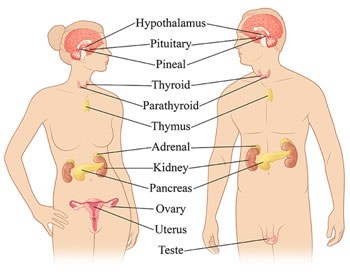What Is Adrenal Fatigue?

The term “adrenal fatigue” refers to a condition where there’s a decline in energy-providing hormones, such as cortisol. This can be misleading because it focuses attention on the symptom rather than the underlying cause. It’s not just associated with intense or prolonged stress but can also arise from acute or chronic infections, especially those that have to do with the respiratory tract such as the flu, bronchitis, or pneumonia.
Dr. Berutti has been my doctor for over 20 years, I have complete confidence in her ability to diagnose and care for my health. She takes the time to sit and listen to me. She is intelligent and caring I recommend her to anyone seeking a doctor.” – Cheryl A.
The Stress Hormone
Cortisol is a “stress hormone” and is the most important hormone to keep balanced. It’s needed to live, sleep, manage stress, regulate mood, balance blood sugar, regulate blood pressure, and modulate the immune system. With constant stress, your cortisol levels can initially rise, eventually causing you to deplete your “reserves,” leading to adrenal fatigue. Adrenal glands are associated with the fight-or-flight response. They produce cortisol, adrenaline, and other hormones that control your body’s responses to every kind of stress – physical, emotional, or psychological. Adrenals also produce hormones that regulate energy production, immune function, heart rate, muscle tone, and other processes that help you to cope with stress. Adrenal fatigue can become severe and wreak havoc on your day-to-day living. Its most prominent symptom is fatigue, which can range from mild to severe. Every organ and bodily system is affected including carbohydrate, protein, and fat metabolism, fluid and electrolyte balance, the cardiovascular system, and the sex drive. A lot of other changes take place at the biochemical and cellular levels to respond to and compensate for the decrease in adrenal hormones.
Have Questions? Contact Our New Patient Coordinator!
Call 817-539-6168
Or, Simply Complete the Form Below and We Will Contact You!
What Causes Adrenal Fatigue?
In a word, stress. When you experience stress, whether it be acute or chronic, the adrenal glands kick into high gear, pumping out cortisol and adrenaline so that you can survive. This stems back to the ancestral days when our forefathers were exposed to more life-and-death situations. The adrenal glands helped them to survive. When cortisol and adrenaline are secreted in higher amounts as a stress response, it causes your body to go into survival mode. Blood, oxygen, nutrients, and hormones are directed where they need to go in order to survive, such as the lungs, muscles, and heart.

Common Scenarios Include:
- Diseases to include severe or recurrent illnesses or infections
- Physical stress on the body such as poor nutrition, addiction, injury, surgery, and long-term exhaustion
- Chronic sleep deprivation (to read more about sleep disorders and how we treat them, click here.)
- Emotional or psychological stress from work or relationships
- Sudden emotional stress from a tragic event such as an accident or loss of a loved one
- Environmental stress on the body caused by toxic chemicals or pollutants
- Over-exercising (especially endurance)
- Constant worry about the future
- Commuting long distances to work
- Toxic relationships
- High-stress jobs
- Excessive sugar and carbohydrate intake
- Frequent skipped or delayed meals
Additional Causation
While our ancestors were exposed to more life and death scenarios than we are in modern-day times, they also lived by daily and seasonal cycles. They went to bed when it got dark, and woke with the sunrise. Cortisol levels should change throughout the day and be highest in the morning when waking, and then fall when the sun goes down. Melatonin (the sleep hormone) levels should rise in the evening preparing the body for sleep. Modern-day living can prohibit the natural rhythm of the rise and fall of these hormones. Millions of people are chronically sleep-deprived which not only disturbs the natural daily cycle but also causes more stress, which then depletes the adrenal glands further and compromises the immune system even more. It turns into a vicious cycle. Creating time to relax and unplug is crucial to managing stress effectively.
Dr. Berutti is absolutely the best! I have tried many different things over the years to balance my hormones and got some relief but it was still a roller coaster for me. After being off all products for one year, I made an appointment with Dr. Berutti. They were up front about what the costs and protocol would look like. During my first appointment and discussing some of the things I have struggled with, she mentioned taking a SIBO test. Along with the SIBO test, which was positive, and other blood/saliva tests, she came up with a tailored plan for me and my symptoms. Every 3 months she orders new test to see where the hormone levels are and how to adjust them. Now only 7 months in, I feel so much better than I did before and it is a consistent feeling. No more roller coaster. I can only imagine it will get better as time goes on. I knew going in what the commitment on my part would be but there is no “magic wand” that will just change everything overnight. Dr. Berutti is very focused on listening to what your concerns are and dedicated to helping you achieve feeling your best. Her office is an hour away from me but worth it to get the quality of service she provides. Recommend her 100%.” – Judy J.
Common Symptoms of Adrenal Fatigue
- Chronic fatigue
- Nervousness/anxiety/tremors
- Insomnia (body clock is off)
- Digestive issues
- Weight gain, especially around the abdominal area
- Inability to lose weight, despite exercising and eating clean
- Depression (serotonin levels can become depleted with adrenal fatigue)
- Brain fog
- Stomach pain
- Overall muscle weakness
- Severe energy dips throughout the day
- Energy surges before bedtime
- Dizziness when standing
- Low libido
- Compromised or weakened immune system
- Waking up exhausted even after a full night’s sleep
- Increased need for stimulants such as caffeine to get through the day
- Not feeling like you can cope with everyday stress
- Difficulty multitasking
- Feeling rundown and overwhelmed
- Decreased overall resilience
- Thyroid problems
- Low blood sugar (hypoglycemia)
- Lack of motivation
- Weight loss
- Sugar and carbohydrate cravings
Have Questions? Contact Our New Patient Coordinator!
Call 817-539-6168
Or, Simply Complete the Form Below and We Will Contact You!
Impact of Cortisol on Other Hormones

Insulin Resistance
Cortisol and the hormone insulin, which is responsible for regulating blood sugar, have a direct relationship with each other. When cortisol levels rise, the cells can become resistant to insulin which may cause high blood sugar, and weight gain, and potentially lead to Type 2 Diabetes. When cortisol levels are low and the adrenals are exhausted, sugar levels may decrease, causing hypoglycemia, weight loss, and a very low tolerance to stress.
Insulin resistance also affects the sex hormones of both males and females. BOTH high and low levels of cortisol can cause metabolism to drastically slow down leading to feelings of fatigue, depression, feeling cold all the time, and experiencing decreased memory and concentration abilities. Insulin levels should always be checked as part of a comprehensive lab panel because blood sugar and A1C may not accurately depict that there is a problem in the beginning stages. If you are a woman with a waist circumference of greater than 30 inches or a man with a greater circumference of 35 inches, chances are that you are insulin resistant.
DHEA
This is one of your sex hormones that is produced by the adrenal glands, brain, and skin. DHEA also helps to balance cortisol. It helps your body make testosterone and estrogen. Our natural DHEA production is highest in the twenties and falls by about 80% by the seventies. When someone develops adrenal exhaustion from chronic stress, the adrenal glands can’t make enough cortisol or DHEA. This leads to the following symptoms:
- Decreased energy
- Loss of muscle mass
- Irritability
- Joint pain
- Weight gain
- Blood sugar imbalances (Insulin Resistance, Diabetes, Hypoglycemia)
- Sleep
- Weakened immune system
Pregnenolone
This is the hormone best known for helping mood, memory, and sleep. It’s made from cholesterol in the diet as well as from the adrenal glands, liver, brain, testicles, and ovaries. Pregnenolone is also called the “mother hormone” because it is the precursor from which almost all other hormones are made including DHEA, progesterone, testosterone, estrogen, and cortisol. By age 75, 60% less pregnenolone is produced than in the thirties. Pregnenolone production can also decline when the body senses that cortisol levels are low. In addition, the body will also “steal” pregnenolone to make cortisol which further depletes pregnenolone, and creates a cascading effect of hormone deficiencies. Overall benefits of pregnenolone include:
- Increased energy
- Improved memory
- Improvement with depression
- Improvement with autoimmune conditions
- Improvement with osteoarthritis
- Improvement in deep sleep
Thyroid
Thyroid disease has reached epidemic levels in the United States, and still, many people go undiagnosed. Hypothyroidism, (under-producing thyroid) produces symptoms such as weight gain, fatigue, hair loss, dry skin, etc. Some hypothyroidism can be treatment-resistant and the reason is often that many medical providers skip the adrenal function altogether.
Too Much Stress
When you are under stress, your hypothalamus sends a signal to your pituitary gland which then signals your adrenals to produce more steroid hormones such as cortisol. Once this process is in motion, cortisol and other hormones signal your body to direct all of your body’s normal functions to only what is essential to overcome the stressor. This means that other functions such as digestion, the immune response, and thyroid function are on hold until the stress has passed. In a perfect world, stress would pass quickly, and your body would return to normal. However, because of the hectic lifestyles and chronic stress that modern society is exposed to, the stress doesn’t end quickly, and therein begins the negative feedback loop that occurs between the hypothalamus, the pituitary gland, and the thyroid gland. Stress also produces inflammation which makes thyroid receptors less sensitive to hormones produced by the thyroid. A lot of patients who are put on thyroid medication without any adrenal support can initially get worse and experience shaking hands, racing heart, and insomnia to name a few. This is caused by their body being forced into “overdrive” from the rush of thyroid hormones.
Vitamin Deficiencies Also Contribute to Adrenal Fatigue
Numerous studies have indicates that certain vitamin deficiencies influence both cortisol and the immune response.
- B Vitamins also help to combat inflammation and improve brain health
- Magnesium deficiency directly affects the function of the hypothalamic-pituitary-adrenal (HPA) axis
- Vitamin D helps regulate cortisol and other endocrine processes such as insulin resistance and Type 2 Diabetes.
- Vitamin C helps regulation of cortisol and also improves the immune response.
Stress and Gut Health – Finding the Root Cause
The stress of any kind impacts just about every single bodily process including the health of the gut microbiome. When the microbiome is not functioning properly, it also leads to inflammation throughout the body and is the root cause of many serious diseases including autoimmune disease, cardiovascular disease, cancer, and more. Inflammation can be exacerbated by:
- Smoking
- High glycemic diet (sugary, starchy, and processed foods)
- Excessive alcohol consumption
- Insufficient intake of nutrients due to eating the Standard American Diet
- Sedentary lifestyle
- Obesity
- Lack of exercise
- An unhealthy gut
- Exposures to toxins
- Damage from free radicals and oxidative stress
Studies have also shown that there is a definitive link between gut health and overall health. In fact, the gut is often referred to as the “second brain.” Diet is THE most important modifying factor of the gut microbiome-gut-brain axis. This is why an unhealthy gut microbiome can cause gut issues such as IBS (Irritable Bowel Syndrome), SIBO, and Leaky Gut Syndrome.
What is interesting is that adrenal fatigue and dysfunction with the immune response can cause gut issues, the reverse is also true. An unhealthy gut microbiome can also cause dysfunction with cortisol and lead to adrenal fatigue. It can quickly become a vicious cycle.
Gut Health
- Stress causes less stomach acid to be released, which also slows the digestive process.
- This allows more harmful bacteria to grow in the gut.
- Low acid levels also cause bacteria to travel down into the GI tract and into the small intestine, where it doesn’t belong.
- This impairs the motility of the small intestine, which worsens bacteria overgrowth.
- This then leads to SIBO and Leaky Gut, which can both make you very sick.
- 70% of the immune system originates in the gut, so it makes sense that if the gut is dysfunctional, it’s going to make the body more vulnerable to dysfunction and disease.
At Dynamic Life Health Center, we understand the importance of a healthy gut microbiome, and how to restore dysfunction. Dr. Berutti and Melanie offer to test for food sensitivities and overall microbiome health to determine whether or not there is dysbiosis (imbalance of gut) occurring. Because dysfunction within the gut can be the root cause of so many other health conditions, once we identify the problems, we can then treat them effectively and begin restoration to better overall health!
Because there are so many different factors that can affect your cortisol and adrenal health, it can take up to 6 months to a year to restore health.
How We Treat Adrenal Fatigue at the Dynamic Life Health Center

When we onboard you as a new patient, we ask that you complete a detailed Adrenal Questionnaire along with a Sleep Questionnaire, both of which provide a broader picture of how you are dealing with stress, along with providing insight into your sleep. Both of these provide the basis for beginning your treatment since both are vital to health and the stress response.
We use a Functional Medicine Approach Which Helps Us to Get to The Root Cause
Dr. Berutti and PA, Melanie Martin, use a functional medicine approach which includes more quality time spent with you during appointments and taking a whole-body approach in which she looks for all possible underlying causes of what’s making you ill. Spending more time with you allows us to delve into your past medical history, and your current symptoms, and to identify both internal and external stressors that are causing you harm. She will order detailed and comprehensive lab work tailored specifically to your situation to identify where any imbalances or dysfunction are occurring and will come up with an individualized treatment plan just for you.
Addressing hormonal imbalances, and gut health issues, and supplementing key vitamins, minerals, and/or adaptogenic herbs are the first step to restoring you to optimal health. We only prescribe bioidentical hormones at the Dynamic Life Health Center, which are molecularly identical to the hormones your own body produces. We offer specific supplements for adrenal fatigue and recommend Dr. Wilson’s products because of their pharmaceutical-grade quality, safety, and ability to be absorbed by the body.
Your provider will also talk to you about nutrition, lifestyle, and ways to better manage stress in your life.
A Comprehensive Approach to Adrenal Fatigue Includes:
- Addressing hormonal imbalances and nutritional deficiencies.
- Adding the use of adaptogenic type herbs such as ashwagandha and Rhodiola Rosea to help with the stress response.
- Gut health and/or food sensitivity testing as needed.
- Eating a whole foods type of diet.
- Eating regular meals which will keep blood sugar balanced.
- Cutting out sugars, starches, and processed foods (these types of food are not only nutritionally defunct, but they also place further stress on the body).
- A regular exercise program that includes stress reduction types of physical activities such as walking in nature, yoga, and tai chi.
- Scheduling daily time to be still and devote to yourself, doing something you enjoy, or just resting or meditating.
- Addressing chronic sleep issues (Dr. Berutti will help you to identify and treat your individual sleep problems).
- Going to counseling as needed to help cope better with stress or resolve relationship issues, etc.
Contact our New Patient Coordinator for More Information
When many patients come to see us, they have lost hope because they’ve felt unwell for so long and don’t see any light at the end of the tunnel. It’s rewarding as a practitioner to help so many people realize a much-improved quality of life and a regained sense of vitality!
Please call us to get more information about how our clinic and providers can help you with your health goals and to schedule an appointment.
We look forward to the opportunity to restore your health and regain your vitality for life!
For More Information Call Us at 817-539-6168
Or fill in the inquiry form below and tell us the best way to reach you.
Contact
"*" indicates required fields


